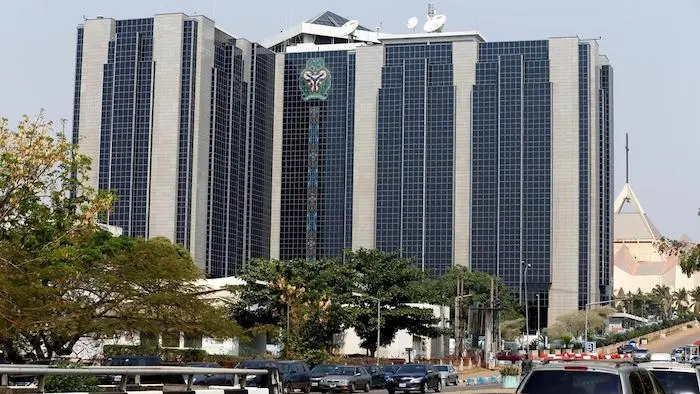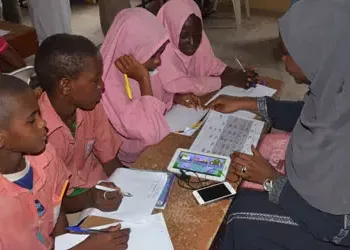This is continued from next week. I support the idea of naira redesign and believe it is also an opportunity for the CBN to take far-reaching decisions that could help the value of the currency. Some other steps will include:
- New modus operandi should be administered for the BDCs. The business is very profitable based on fee-based income but they need to be reorganized to meet global standards. Also, BDCs could involved in local and foreign transfer business, including remittances subject to limits. ALL transactions to be documented by CBN and close supervision (daily supervision) enforced. This means that the CBN has to employ more boots on ground for this active daily work. Also, BDCs are a great source of corporate employment all over the world. It is not a place for semi-literates honestly.
- CBN to ensure political support around properly criminalising street trading of foreign exchange. It is the ease of access to the so-called ‘black market’ that has resulted in so much indiscipline and the constant volatility around naira rates.
- CBN to ensure education of newspaper houses, TV stations and other media including new media around why it is an anomaly to report ‘black market’ rates as the ‘real rates’. Also, CBN should engage and write intellectuals including those who may be consultants to it or advisers to Federal Government about the implications of talking down the naira or valorizing the black market. There is indeed a black market for everything, including currencies in every country, only that it is properly treated as illegal, and anyone approaches them with great fear and trepidation and a foreboding sense that anything could happen. These black markets are on the same plane as the dark web and are run by drug lords and men of the underworld. People who go there are such that do not want their transactions traced. Again, Buhari should redeem his image.
- CBN should take note of the recent IMF intervention on this matter, especially the concern about financial and real dollarisation and their distortions in the economy. The IMF had advised that “Financial dollarisation-related financial instability would need to be addressed via policy responses such as a central bank forex reserve buildup and associated regulation.”. What this means is that the CBN will have to be firm in the area of regulation as this is the surest way of ensuring forex reserve buildup. Nigeria is a perfect case study for what the IMF described as hysteresis and bi-monetarism. But we must not allow hysteria run our economy. From what the IMF explained, financial dollarisation is when transactions are done in local currency but savings in foreign currency (dollar). However, the escape by savers into dollars further reinforces inflation by amplifying external shocks, thus defeating the purpose and leading to a race to the bottom (vicious cycle and hyperinflation). This happens as people hoard dollars, making dollar/naira rates higher and imports (which is almost everything here), more expensive. The people thus amplify imported inflation. Talk about a snake swallowing itself. We are hurting ourselves in Nigeria and it makes no sense.
- CBN must be careful of information asymmetry and compromises from within. It is a fact that every Nigerian that is financially buoyant accesses the easy black market today and the disappearance of that market will mean that we all technically lose money. However, we will be losing money for our country and its long-term survival. The first bitter pill will have to be swallowed by central bankers for this is the right thing to do. Also, the CBN should educate every Nigeria that having a single rate that clears the market is a myth. Nowhere in the world do we have a single rate. Not even from one BDC to another, or even in the same BDC. The margins should however be thin – not more than 10 per cent of quoted rates (the I&E – Investors and Exporters window being our benchmark now with as much transparency as we can manage)
- Since this is a two-sided affair, the CBN should show strength by applying carrot and stick. To this extent, I suggest that the CBN raise PTA limit to $10,000 but only $2,000 be paid as cash. The rest should be loaded in dollar debit cards. Indeed, I believe we should detach a bit from the fixation with dollar, and also issue GB Pounds and Euros to those going to where those currencies are spent. Also, it could peg family at a maximum of $30,000 no matter how large and once a year. Whereas some families can afford to spend more on a simple holiday, now is the time to appeal to everyone’s patriotism.
- The CBN should also try to meet other form A (Invisible Trade) transactions and reduce the frustration around import transactions presently experienced by businesses. However, technology should be deployed to curb the many incidences of attempted roundtripping by Nigerians who raise fake import forms.
- CBN could also use this opportunity to power the e-Naira and its proposed domestic card. The e-Naira could enable Nigeria’s currency to attain a level of compatibility which has been elusive for some time. This will be based on guarantees to the international community by the CBN. The Nigerian card could also serve this purpose just as the Indian Rupay card, and China’s Unionpay is doing. Every country is now taking charge of their own destinies.
- Using tariff barriers against the 43 ‘unsupported’ items to reduce the excuses around those who say the CBN is encouraging them to approach unofficial sources. Tariffs non foreign toothpicks, Indian incense and candles, water, vegetables, eggs, fish, and other items which we are producing locally could be as high as 200 per cent and this could also enable some income redistribution.
- If it becomes very difficult to change dollars on the streets and CBN can get the BDCs on side (I don’t see why not), the CBN may incentivise holders of dollar cash to deposit at the banks and/or change at a premium to I&E (official) window rates. This way, the CBN may be able to get more dollars to fulfill its burgeoning obligations.
- In the alternative, the CBN may consider in addition to outlawing black market dollar trading, the removal of personal Domiciliary account privilege for Nigerians for now. When people ‘save’ in Dollars and people change their salaries into Dollars, they are taking a position against the Naira and a self-fulfilling prophecy situation occurs – the naira will keep falling.
- CBN must be able to cause revaluations of the naira in the official markets to indicate market direction and move against speculators and currency attackers if 15 above can be achieved. We have to be able to show that the naira is not going to hell.
- CBN must ensure a focus on the naira and a gradual but certain shift of mindshare of our people from the dollar, such that with the Naira we are able to reboot our economy by increasing the velocity of the money supply and for payment of fully local services – like labour.
- People have speculated that the CBN will not print all the N3.2 trillion it is taking out of circulation and that makes sense. Scarcity of Naira at some point may lead to people changing their dollars back into naira cash just to live their normal lives, thus strengthening the naira. Scarce naira cash, coupled with the new innovations that the CBN is bringing up (such as the Naira domestic card) will also lead to better adoption of e-banking. In the UK for years now, a third party cannot pay cash into any account. In most countries they have since gone contactless.
- The CBN must assure the markets that it is impossible for people to walk to the Central Bank, obtain $10 million and swap it to get huge premium the way former Emir Sanusi has been repeatedly claiming. Or is it?
- CBN must avoid the dilemma between sector deregulations (downstream petroleum for example), and unilateral devaluation of the naira (often arbitrary and baseless but being pushed by several powerful individuals and interests, locally and internationally). The devaluation of 2016/17 undid the deregulation of the petroleum sector by the Buhari administration and left us with spiking inflation and an eroded standard of living… while the deregulation still remains a problem. In other words, the CBN should try not to devalue the currency for now.
- Public officials, especially those whose opinions can sway the markets heavily should be made to understand that the markets are watching what they say. They are better off keeping their opinions to themselves. The public should also be educated that their country’s currency is their representation, and we should stop working to destroy the currency. Thatcher reechoed Stalin when she said that ‘To destroy a country, first debauch its currency’. Why are Nigerians today debauching their own currency?
- Further misconceptions that we must get rid of include the idea that a currency’s value is solely determined by its productivity. No. if that was true, then the British Pounds should trade at around 30 to 50 to the US Dollar, after all the US economy is much bigger, the population is larger and the goods and services produced in the US are more sophisticated and science-based. Even the UK is losing bright people to the US in every field – even to China these days. So why is the Pound trading at $1.19=GBP1?
- The CBN may wish to have a rethink about the ubiquity of personal domiciliary (DOM) accounts in Nigeria. At the end of the day, it is a policy and a privilege for Nigerians to hold DOM accounts of any type. The CBN reserves the right to cool out the policy from time to time if it believes it has become an avenue for the siphoning of its reserves. This is a touchy policy, so the CBN can offer Nigerians a premium of up to N100 to sell dollars officially into its position. If the black market is no longer available on the streets, people will take that option and avoid the trouble of arrest or fraud.





